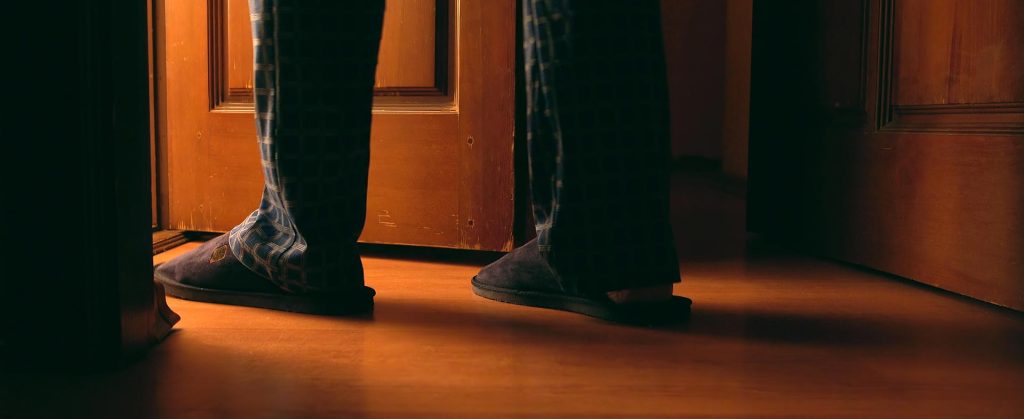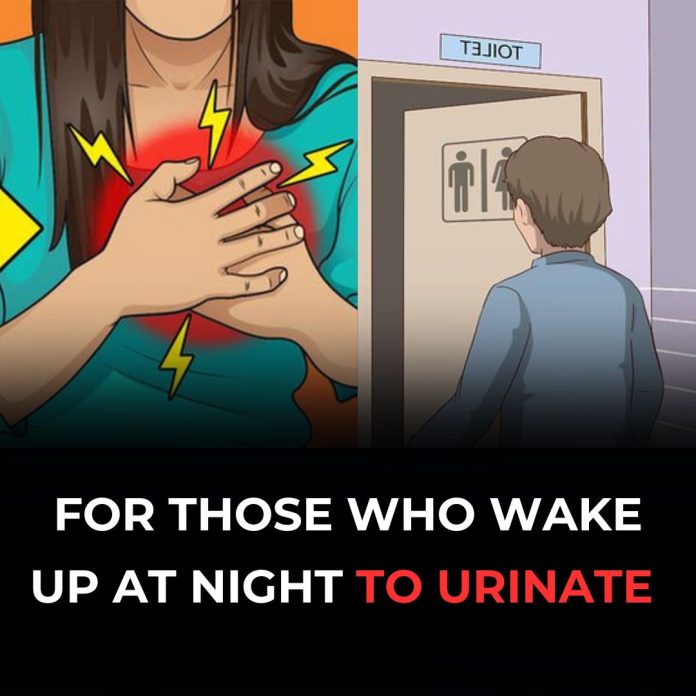Experiencing frequent nighttime urination, known as nocturia, can significantly disrupt sleep and impact overall well-being. While it becomes more common with age, nocturia is not an inevitable part of aging and may indicate underlying health issues. Understanding its causes, potential health implications, and management strategies is crucial for maintaining quality of life.
Understanding Nocturia
Nocturia is characterized by the need to wake up one or more times during the night to urinate. Unlike enuresis (bedwetting), individuals with nocturia are awake and aware of the need to urinate. This condition can lead to fragmented sleep, resulting in fatigue, mood disturbances, and decreased cognitive function.

Common Causes of Nocturia
Several factors can contribute to nocturia, including:
- Excess Fluid Intake Before Bedtime: Consuming large amounts of liquids, especially those containing caffeine or alcohol, can increase urine production at night. Caffeine and alcohol are diuretics and bladder irritants, leading to more frequent urination.
- Aging: As individuals age, the body’s production of antidiuretic hormone decreases, leading to increased urine production at night. Additionally, bladder capacity may diminish with age.
Medical Conditions:
- Urinary Tract Infections (UTIs): Infections can cause irritation and increase the urgency and frequency of urination.
- Diabetes Mellitus: Elevated blood sugar levels can lead to increased urine production as the body attempts to eliminate excess glucose.
- Benign Prostatic Hyperplasia (BPH): An enlarged prostate can obstruct urine flow, leading to incomplete bladder emptying and increased nighttime urination in men.
- Heart Conditions: Congestive heart failure can cause fluid accumulation during the day, which is then mobilized and excreted at night.
- Sleep Disorders: Conditions like obstructive sleep apnea are associated with nocturia.
- Medications: Certain medications, such as diuretics prescribed for hypertension, can increase urine production and contribute to nocturia.
Potential Health Implications
- While nocturia can result from benign factors like increased fluid intake, it may also signal more serious health concerns:
- Diabetes: Frequent urination, especially at night, can be an early sign of both type 1 and type 2 diabetes.
- Prostate Issues: In men, nocturia is a common symptom of prostate conditions, including prostatitis and BPH.
- Cardiovascular Problems: Nocturia can be associated with heart conditions that affect fluid balance in the body.
Management and Prevention Strategies
To address and potentially reduce nocturia, consider the following approaches:
- Monitor Fluid Intake: Limit consumption of liquids, particularly those containing caffeine or alcohol, in the hours leading up to bedtime.
- Establish a Pre-Sleep Routine: Ensure you urinate immediately before going to bed to minimize the likelihood of needing to wake during the night.
- Evaluate Medications: If you are on diuretics or other medications that may affect urination, consult with your healthcare provider about adjusting the timing or dosage.
- Manage Underlying Conditions: Effectively controlling conditions like diabetes or heart disease can alleviate symptoms of nocturia.
- Pelvic Floor Exercises: Strengthening pelvic muscles can improve bladder control and reduce urinary urgency.
- Optimize Sleep Environment: Creating a comfortable and dark sleeping environment can promote better sleep quality, potentially reducing awakenings.

When to Seek Medical Advice
If nocturia persists despite lifestyle modifications or is accompanied by other concerning symptoms such as pain during urination, blood in the urine, or unexplained weight loss, it is important to consult a healthcare professional. They can perform evaluations, including urinalysis, blood tests, and imaging studies, to identify any underlying conditions and recommend appropriate treatments.
In summary, while getting up occasionally to urinate at night can be normal, frequent nocturia should not be ignored. It is essential to recognize potential underlying causes and seek medical advice when necessary to ensure overall health and well-being.

















